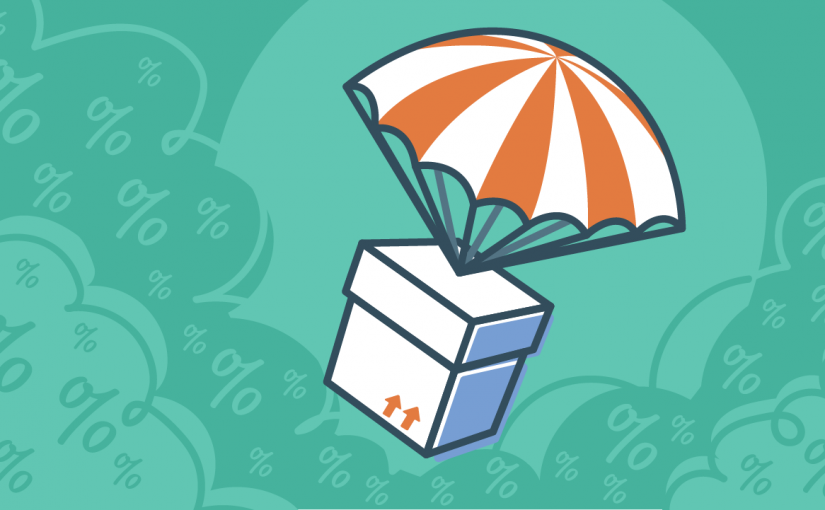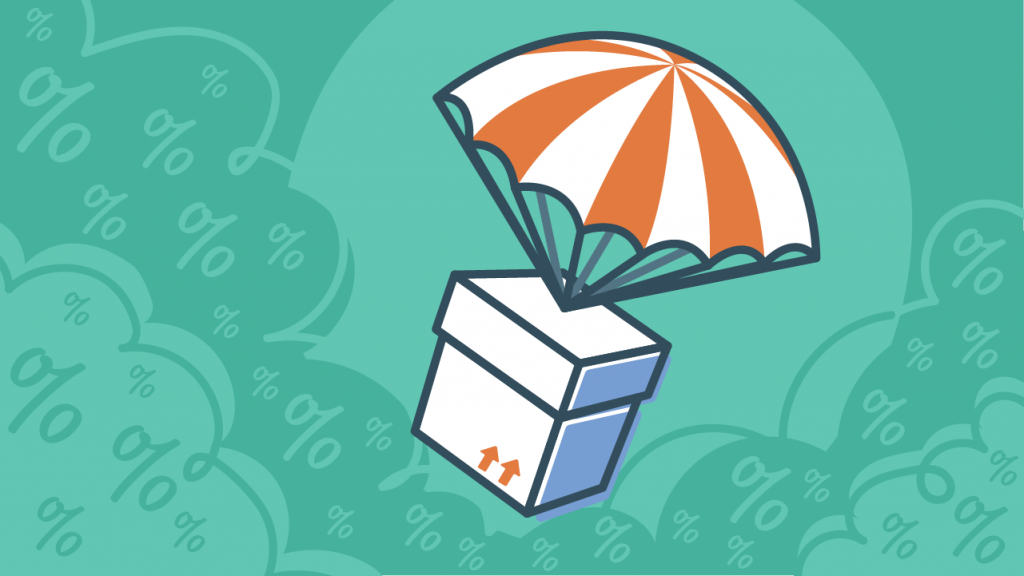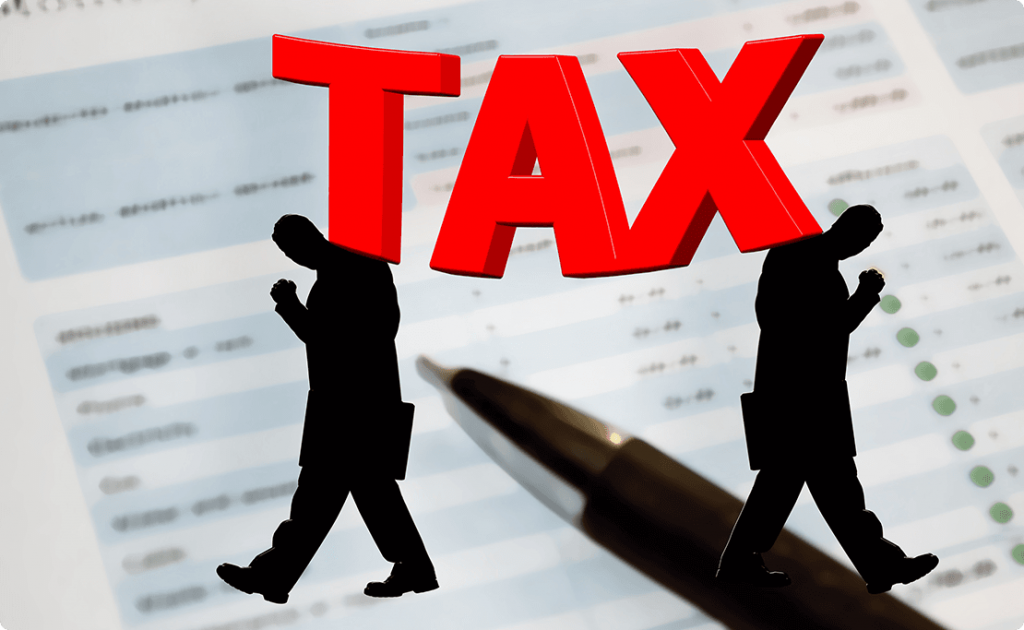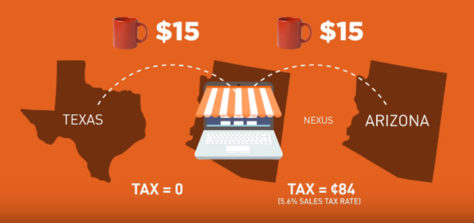This post will explain the general rules around dropshipping taxes, plus how to comply with tax rules in major world markets.
There are two purchases at play in dropshipping for one product: the customer buys from the retailer, then the retailer from the supplier. So when is sales tax charged and collected, and by whom? Let’s get started.
What Is Dropshipping Taxes?
There are two types of taxes you may have to pay if you run a dropshipping store – Income tax & Sales tax.
What Is The Income Tax?
Income tax is the tax you pay on your store’s annual income. It’s the same as paying a tax on your wage when you have a regular job.
The money you have to pay as a tax depends on your profit. So, if you don’t have a profit, you’re not required to pay this particular type of tax. You can also claim a tax credit if you had a loss in the previous year.
You pay income tax to your local government. For example, if you live in the US, you’ll always pay income tax to the US government. Even if your customers are based in another country, you’ll always pay income tax to your local government.
In some instances, you may have to pay tax to both federal and local governments (if you’re based in the US). Fortunately, income tax is pretty simple to handle, and it isn’t much of a burden like a sales tax.
What Is The Sales Tax?
Simply put, sales tax is a type of consumption tax. It is levied on the purchase of products and services.
Since end-users are the actual consumers of the products or services, they’re liable to pay this tax.
As the dropshipping business model slightly varies from the actual retail business model, it often becomes challenging for your online store to determine the actual buyer or consumer of the product or service.
The major point of concern with dropshipping is who collects the sales tax from the end-user? Is it you, the retailer, or the vendor.
Interestingly, there is no answer to this question. Generally, you’re not liable to pay sales tax on your purchases for resale purposes. But for this, you’ll have to apply for the official exemption certificate.
Should You Charge Sales Tax From Your Customers?
USA
If you’re registered through SSUTA and hold sales tax nexus in a state, you have to collect and remit sales tax in the states where you’re registered.
But if you’re a dropshipping store, you may need to check out your state laws regarding sales tax and exemption certificates.
On the other hand, if you do not have nexus in a state, that generally means you’re exempt from collecting and submitting sales taxes.
But again, you might be on the hook for a tax if your vendor is based in the same state as the final consumer.
While some states consider an in-state vendor to qualify as a nexus for that sale, some US states have different legal clauses about this particular situation.
Make sure you always check each state’s policy to confirm you and your business are compliant with the legal clauses.
Canada
If you’re based in Canada, you’re more likely to collect and remit goods and services tax, also known as GST. Notably, this tax is charged on each phase of production.
Like the US sales tax, GST is levied as a flat-rate percentage.
Canada currently follows “the place of supply law.” This rule determines the tax rate you should follow to collect and pay the concerned authority.
Here it’s important to understand that determining the place of supply depends on your current location, the types of products or services you offer, and to whom.
There is no confusion if you’re an online store dealing with tangible products. Charge GST across the board if you’re operating from Canada.
EU
Next on our list are the owners who’re selling from the EU.
If you run a VAT-certified business in the EU and your vendor is also based in the EU, the reverse-charge mechanism will be implemented on B2B transactions.
On the flip side, if you run your business outside the EU and your supplier is in the EU, you don’t have to pay VAT.
You must register your dropshipping business for EU VAT if you’re based outside the EU. You can immediately start charging tax once you go beyond thresholds.
Charging tax from your customers at the time of purchase is highly crucial. If you don’t register your dropshipping store for VAT, you risk providing poor customer service.
If your products are being ordered from outside the EU, the customer might have to pay extra charges and VAT. Such unexpected costs make up for negative customer experience.
We suggest you follow the distance selling laws in the EU if you’re looking to provide the best customer service to your buyers across the board.
Did you know Shopify automatically collects dropshipping tax on each order? You may have to check out guides on other platforms to see how this collection process works on their platforms.
Keep in mind that the guides you’ll find on each platform highlight the sales tax collection process on their platforms. They do not commit to providing any legal advice.
What Are Exemption Certificates?
Exemption certificates are also called resale certificates. Every state has its own rules regarding issuing this certificate to retailers. Some states acknowledge certificates issued by the state, while others also accept multi-state resale certificates (a certificate accepted by multiple states- 38 states, to be precise).
Also, if you’re registered through the Streamlined Sales and Use Tax Agreement, your resale certificate will be acknowledged in every member state.
You must know a few essential things about the exemption certificates before starting your dropshipping business as a retailer.
Exemption Certificates Are Only Legally Used When You Purchase Products With An Intention To Resell
As a general rule, exemption certificates are only applicable when you purchase stuff from a supplier to resell it to other people. It is essential to understand that each state has its laws and regulations regarding issuing and using resale certificates.
Not All Suppliers Will Acknowledge Exemption Certificates
Your supplier reserves the right to accept or refuse your exemption certificate. That’s because the supplier is the next in the queue for unpaid sales taxes if the resale certificate submitted by the retailer turns out to be fake.
Things To Consider For Your Dropshipping Store
First and most importantly, you must ensure that your business is registered. This step is critical, and therefore, we suggest you seek professional advice from an attorney or a tax specialist to learn dropshipping tax laws applicable in your area.
The next thing you may want is to apply for an EIN. The Employee Identification Number is almost the same as the social security number that the IRS uses to identify your business.
Last but not least, contact your local city government to find out whether you need a local business license to run your dropshipping store online.
Like your regular 9-5 job, you’re required to pay tax on your annual income. You have to pay this amount to your local government, and it has to be paid annually.
Dropshipping store owners also need to collect and remit the sales tax to their local governments. However, if you have an out-of-state supplier with no nexus in the particular state, you’re not liable to pay sales tax or VAT on your purchases.
Important tax dates
Knowing what dates you need to file your taxes is just as crucial as knowing where you have nexus. For a more stress-free tax experience, use a calendar to track your most important tax deadlines.
Depending on your entity type, here are a few important tax deadlines that you should be aware of:
March 15 S Corp (Form 1120-S) and Partnership (Form 1065) returns due
April 15 C Corp (Form 1120) and Individual (Form 1040) returns are due
May 15 Exempt Organizations (Form 990) returns due
September 15 Extended S Corp (Form 1120-S) and Partnership (Form 1065) returns are due
October 15 Extended C Corp (Form 1120) and Individual (Form 1040) returns are due
Remember: since sales tax varies by state, the tax return due dates will also vary. Check your state’s department of revenue website for more information.
Conclusion
To sum up, the above are the key points all online retailers should remember when it comes to taxes
The best thing you can do for yourself and your business consults a tax advisor. Experts can help guide you through and take care of the tedious items.
We hope this article will help you get to start your online business. Please leave them in the comment section below if you have more questions. We’re always happy to lend you a hand.




